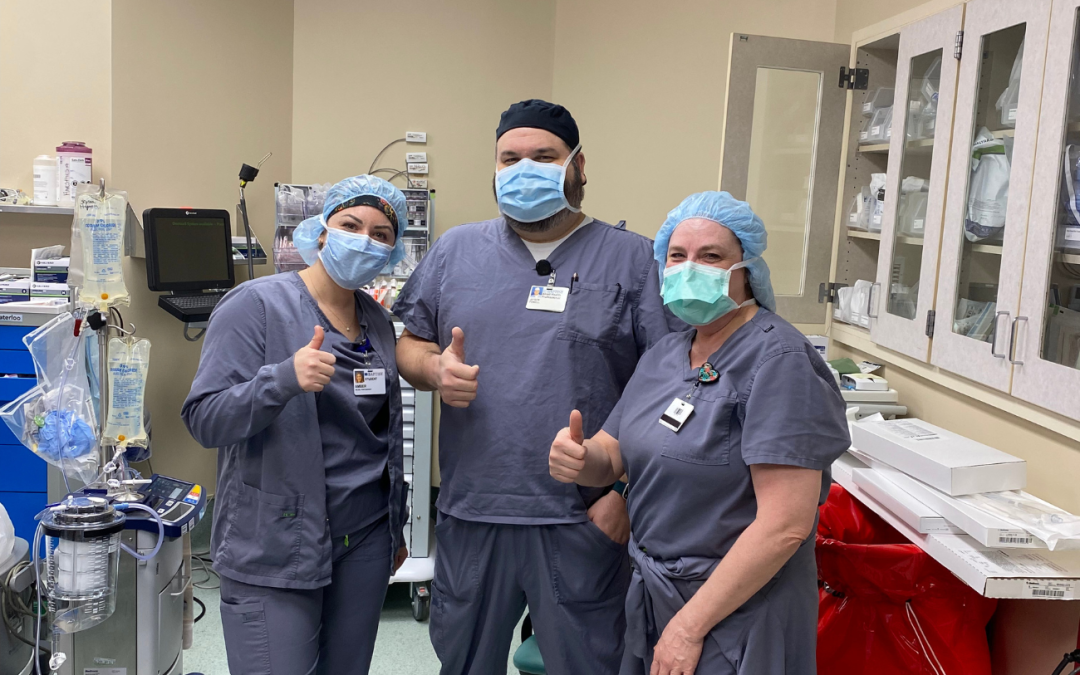If you work in an operating room, you already know—it’s not just a workspace, it’s a world of its own. As a perfusionist, you spend long hours in the OR, surrounded by a rotating team of skilled professionals: surgeons, scrub techs, anesthesiologists, nurses, surgical assistants, and more. This team becomes a huge part of our everyday lives, and over time, they often feel more like family than coworkers.
But those strong bonds don’t just happen overnight. Whether you’re a seasoned perfusionist or just getting started, building solid relationships in the OR helps everything run more smoothly for the team and for the patient. And if you’re someone who struggles with social anxiety or doesn’t always know how to break the ice, don’t worry. There are plenty of simple, low-pressure ways to connect with your OR team.
Why Connection in the OR Matters
The OR is a high-pressure environment. Everyone has a role to play, and every second counts. That’s why communication, trust, and mutual respect are so essential. When you know the people you work with it’s easier to:
-
- Communicate effectively during intense moments
- Pick up on unspoken cues or routines
- Ask questions and advocate for the patient without hesitation
- Problem-solve on the fly as a united front
- Feel more confident and supported, even on tough days
A connected team is a stronger, safer, and more efficient team. And that connection doesn’t require you to be the most outgoing person in the room—it just takes consistency, openness, and a few intentional actions.
6 Ways to Build Relationships in the OR
If you’re not the type to strike up conversations easily, you’re not alone. Here are a few ways to build trust and camaraderie without feeling like you’re putting yourself on the spot.
1. Learn Everyone’s Name
It sounds simple, but it makes a huge difference. Make an effort to learn and remember names especially the people you see most often, like scrub techs, circulating nurses, and anesthesia providers. Addressing people by name shows respect and creates a sense of familiarity.
2. Start with Small Talk
You don’t have to dive into deep conversations right away. Start with light, easy topics like weekend plans, recent weather, or something funny that happened during the shift. Over time, these casual chats lead to real connections.
3. Ask for Input or Advice
Asking a colleague about their process or experience shows humility and interest. For example, “Hey, I noticed you always have a super smooth setup—any tips?” It opens the door for conversation and shows that you value their expertise.
4. Pay Attention to the Vibe
Every OR has its own culture. Some are fast-paced and all business, others have a more laid-back energy. Take a little time to read the room. Matching the energy of the team (while staying professional) helps you feel like a natural part of the rhythm.
5. Express Appreciation
Simple acknowledgments like “Thanks for the heads-up,” or “You handled that really well,” go a long way. Everyone likes to feel seen and appreciated, especially in a high-stress environment.
6. Be Consistently Reliable
Show up on time, come prepared, and communicate clearly. Being reliable builds trust faster than anything else—and once your team knows they can count on you, relationships deepen naturally.
You spend hours with your OR team every day—sometimes more time than with your actual family. Building relationships with them doesn’t just improve communication and efficiency; it also makes your workdays more enjoyable and less stressful. You’ll laugh together, support each other, and yes, even get through the tough cases as a team.
So whether you’re the quiet one or the social butterfly, remember: you don’t have to force anything. Start small, be consistent, and let your connections grow over time. In the OR, a little effort goes a long way.
Connect Perfusion is more than just staffing—we’re building a network of professionals who care about collaboration and chemistry. Follow us on Facebook, Instagram, or LinkedIn for more career insights and perfusion life tips.

